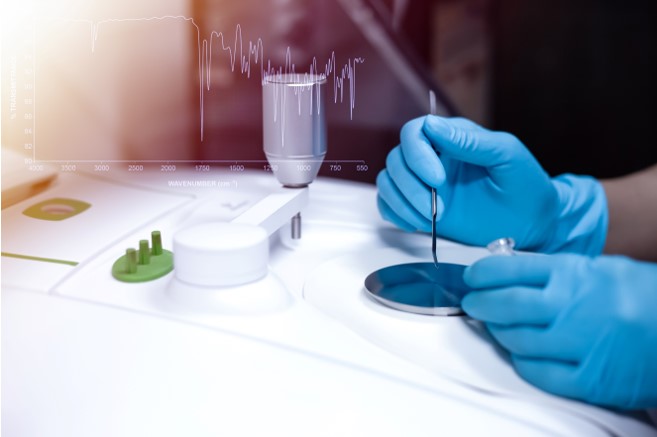Polymer Stabilizer Analysis

BOC Sciences offers top-notch polymer stability analysis services as a seasoned provider of chemical and biotechnology services. Customers that use our services will be able to better understand how stabilizers work in polymer materials, optimize the manufacture of polymers, and enhance the functionality and quality of their products. To ensure customer pleasure, we will offer consumers high-quality services and qualified technical support.
What is Polymer Stabilizer Analysis?
Polymer stabilizer analysis refers to the process of evaluating the effectiveness and performance of additives that are added to polymers to prevent or minimize the degradation of the material due to exposure to heat, light, oxygen, or other environmental factors. The analysis typically involves testing the polymer samples under various conditions and measuring properties such as molecular weight, chain scission, thermal stability, and color changes. The results of the analysis help to determine the optimal type and concentration of stabilizer to use for a particular polymer application.
Polymer Stability Analysis Services
Identification of Stabilizer Types
We can identify the types of stabilizers added to polymers through various chemical analysis techniques, such as mass spectrometry, nuclear magnetic resonance analysis, and infrared spectroscopy.
Determination of Stabilizer Content
BOC Sciences can use analytical techniques such as chromatography and spectroscopy to determine the content of stabilizer in polymers to determine its impact on polymer properties.
Stabilizer Distribution Analysis
Our R&D team can use microscopic imaging technology, scanning electron microscopy and other methods to study the distribution of stabilizers in polymers to determine their mechanism of action in polymers.
Polymer Performance Test
We can conduct various performance tests on polymers, such as heat resistance test, weather resistance test, mechanical performance test to evaluate the influence of stabilizers on polymer properties.
Polymer Stability Analysis Process
Analytical knowledge in a variety of analytical methods is necessary for the complex process of polymer stability study. The findings of this investigation can be used to design new, more stable polymer materials, optimize production procedures, and enhance product performance. Generally, the process of polymer stability analysis usually includes the following steps:
- Sample preparation: collect and prepare representative samples of polymer materials according to specific procedures to ensure the accuracy and reproducibility of the analysis.
- Selection of stabilizer: select the appropriate stabilizer type and concentration based on the polymer material, intended use, and the environmental conditions to which the material will be exposed.
- Test conditions: polymer samples are subjected to various test conditions such as high temperature, exposure to light, exposure to oxygen or other reactive substances.
- Property analysis: in the realm of polymer stability analysis, a crucial step involves delving into the perplexities of data analysis, where the efficacy of stabilizers is scrutinized with great precision.
- Data analysis: burstiness plays a crucial role in this step, as patterns and trends may emerge from the data, revealing connections between the performance of the polymeric material and the stabilizer's effectiveness.
- Stabilizer optimization: the astute analyst must then take these intricate findings and optimize the stabilizer to achieve the desired level of performance and stability required for a given polymer application, taking into account the unique characteristics of each polymeric material.
- Reporting: once this optimization process is complete, the analytical findings are reported in a clear and concise manner, accompanied by any recommendations for further research or formulation changes to improve the stabilizer's performance.
Polymer Stability Analysis Equipment
It should be noted that the equipment required for polymer stability analysis is highly specialized and must be selected with care to ensure accurate and reliable results. The specific equipment used in the analysis may vary depending on the polymer type, intended application, and specific testing requirements. Our polymer stability analysis equipment includes:

- Differential scanning calorimetry (DSC)
- Thermogravimetric analyzer (TGA)
- Dynamic mechanical analyzer (DMA)
- UV-visible spectrophotometer
- Fourier transform infrared (FTIR) spectrometer
- Raman spectrometer
- Gas chromatography (GC)/liquid chromatography (LC)
- Oxygen permeation analyzer
- Colorimeter/spectrophotometer
- Rheometer
An important phase in polymer processing is polymer stability study, which entails a number of steps including sample preparation, stabilizer selection, test settings, performance analysis, data analysis, and equipment selection. To guarantee that a polymer material will carry out its intended function over its anticipated lifetime, proper polymer stability analysis is essential. If you are interested in our polymer characterization services, please contact us now for more information.








